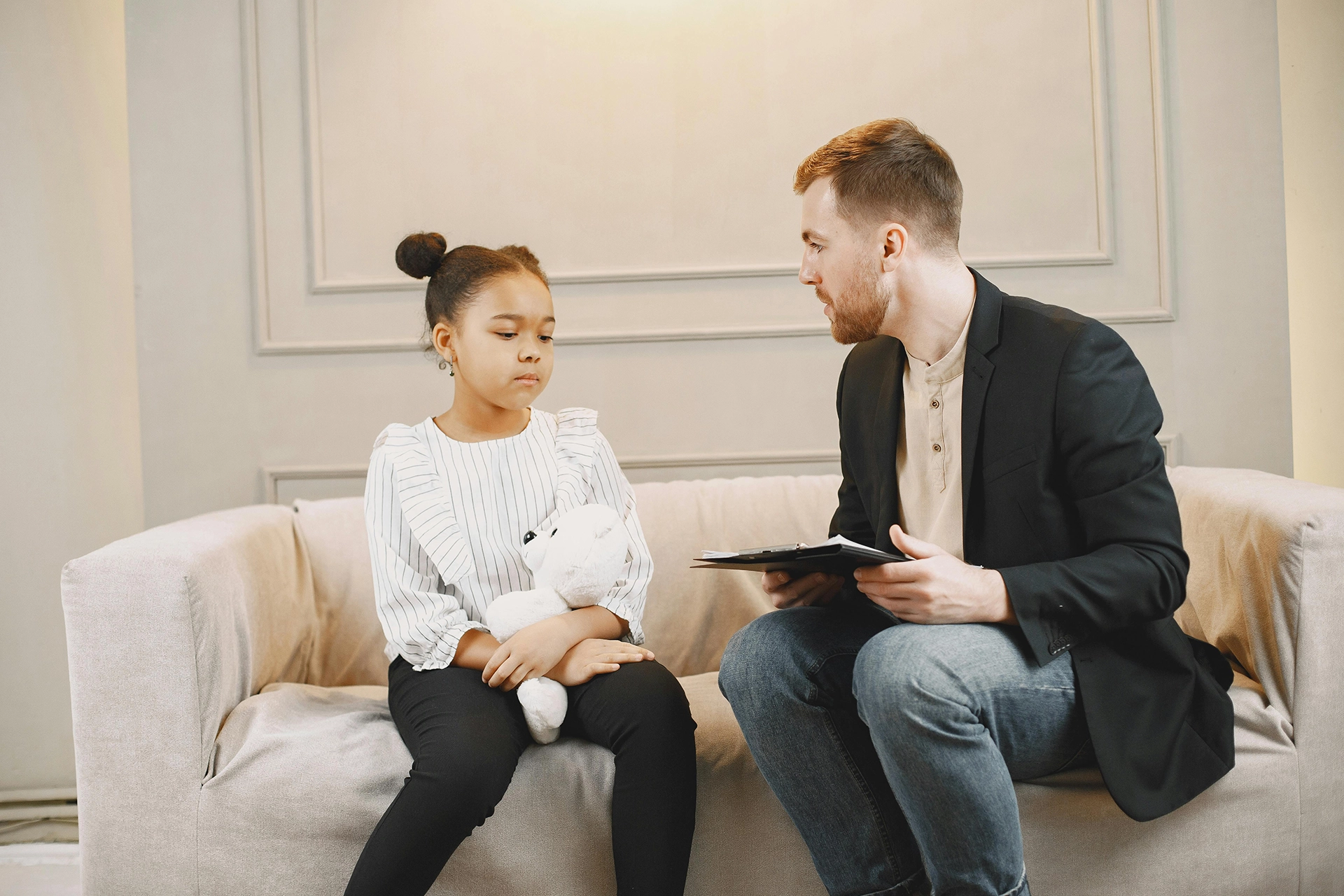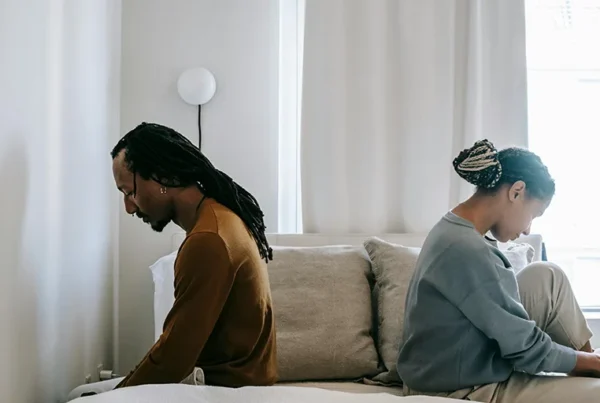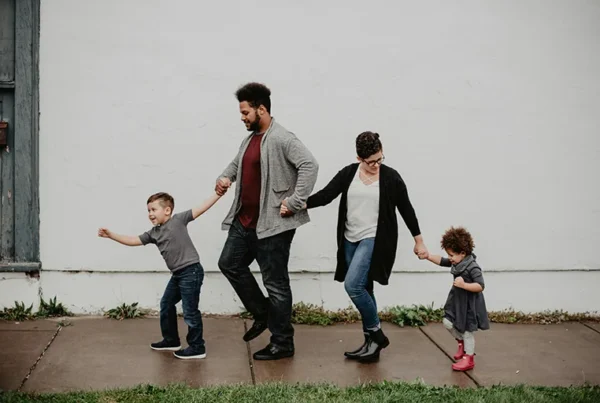Last Updated on November 18, 2025
Does Your Child’s Opinion Matter in Virginia Custody Cases?
If your child has a strong opinion about which parent they want to live with after a divorce or separation, you’re not the only parent facing this conversation. This is one of the most emotionally charged questions Virginia parents face during custody disputes, especially with teenagers or older children.
You may have heard that a child can choose which parent to live with once they turn 14. Or maybe someone told you that the court will always side with the child’s preference. The truth? It’s more complicated than that.
In Virginia, children don’t get to make the final decision, but their input does matter. And in some cases, it matters a lot. Understanding how and when a child’s preference is considered can help you prepare for what’s ahead, especially if your custody order is being reviewed, challenged, or modified.
This blog breaks down the legal age to decide which parent to live with in Virginia, how the process actually works, and what parents should expect if their child wants to speak up.
How Virginia Courts Handle a Child’s Preference in Custody
There’s a common belief that once a child hits a certain age, they can legally choose which parent to live with. But in Virginia, there is no legal age a child is able to decide for themselves which parent to live with. That decision is always made by the court — not the child.
Still, a child’s preference is one of the key factors considered under Virginia Code § 20-124.3. Courts weigh it carefully, especially when the child is mature enough to express their reasons clearly and independently.
Judges don’t just ask how old the child is — they look deeper. Are they being pressured by one parent? Are they choosing based on emotional needs, stability, or comfort? A 16-year-old may carry more weight than a 10-year-old, but even younger kids can have their voices heard if they demonstrate awareness and thoughtfulness.
Can a Minor’s Opinion Change a Custody Order?
When can a minor decide which parent to live with in Virginia? The short answer: They can’t. Only the court can issue or modify a custody order. But if a child expresses a strong, well-reasoned preference, that opinion may influence the judge’s decision, especially if it aligns with the child’s best interests.
There are several ways a child’s wishes might be communicated to the court:
- Through a Guardian ad Litem (a court-appointed attorney representing the child)
- In a private interview with the judge (also called an in-camera interview)
- Through evaluations by custody professionals or therapists
Even though a child can’t make the final call, their voice matters, and in some cases, it can tip the balance.
Why Age Still Matters — Even if It’s Not the Final Word
Many parents ask, “At what age can you choose which parent to live with in Virginia?”. There’s no cutoff that gives a child control, but courts often begin to give more weight to a teenager’s opinion around age 14.
That doesn’t mean the court will automatically agree. Even a 17-year-old can be overruled if the judge believes their preference isn’t in their best interest — for instance, if they want to live with a parent who lacks supervision, rules, or consistency.
Virginia courts always return to one guiding principle: long-term well-being. The child’s emotional and physical needs, the role each parent plays in their life, and any history of instability or conflict will all be part of the final decision.
How to Handle It When Your Child Wants to Switch Homes
Don’t Panic — And Don’t Pressure
It’s completely normal for kids to express a desire to live with one parent more than the other, especially during stressful times like adolescence, high school transitions, or after a disagreement.
The best thing you can do is listen without overreacting and avoid making them feel guilty or responsible.
Consider Mediation or Modification
If the current custody arrangement no longer works, or if both parents agree that a change makes sense — you can seek a custody modification through the court. But even then, there’s no legal age to decide which parent to live with, meaning the child’s preference alone isn’t enough to guarantee a change without judicial approval.
The process includes:
- Filing a petition with the court that issued the original custody order
- Showing a material change in circumstances
- Demonstrating that the requested change serves the child’s best interests
In some cases, the child’s expressed desire can be part of that “material change.”
FAQs About the Legal Age to Choose a Parent in Virginia
Can My Child Testify in a Virginia Custody Court Case?
Technically, yes, but it’s rare. Most Virginia judges prefer not to have children testify in open court. Instead, your child’s input is typically shared in one of three ways:
• Guardian ad Litem: A court-appointed attorney who represents your child’s best interests and may share their wishes.
• In-camera interview: A private meeting between the judge and the child, without parents present.
• Custody evaluator reports: Professionals may include the child’s preferences in written evaluations. This protects the child emotionally while still allowing their voice to be heard.
Can My Teen Just Move Out and Live With Me?
No. A teenager cannot legally move out or choose where to live until they’re 18 years old or legally emancipated. If there’s an active custody order in place, both parents and the child must follow it. To change the arrangement, one parent must petition the court for a modification of custody.
Do I Need a Lawyer to Modify Custody Based on My Child’s Preference?
It’s highly recommended. Even if both parents agree, a custody modification still requires a judge’s approval. And if the parents disagree, having legal guidance is essential to protect your rights and your child’s interests.
Talk to a Virginia Custody Lawyer Who Can Help
At Slovensky Law, we help parents across Virginia understand their custody rights, weigh their options, and advocate for what’s best for their children, including situations where a child’s preference may come into play.
If your child has expressed a desire to live with one parent over the other, or if you’re exploring custody modification, we’re here to help you move forward with clarity and confidence.
Let’s talk through your next steps





